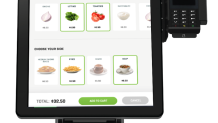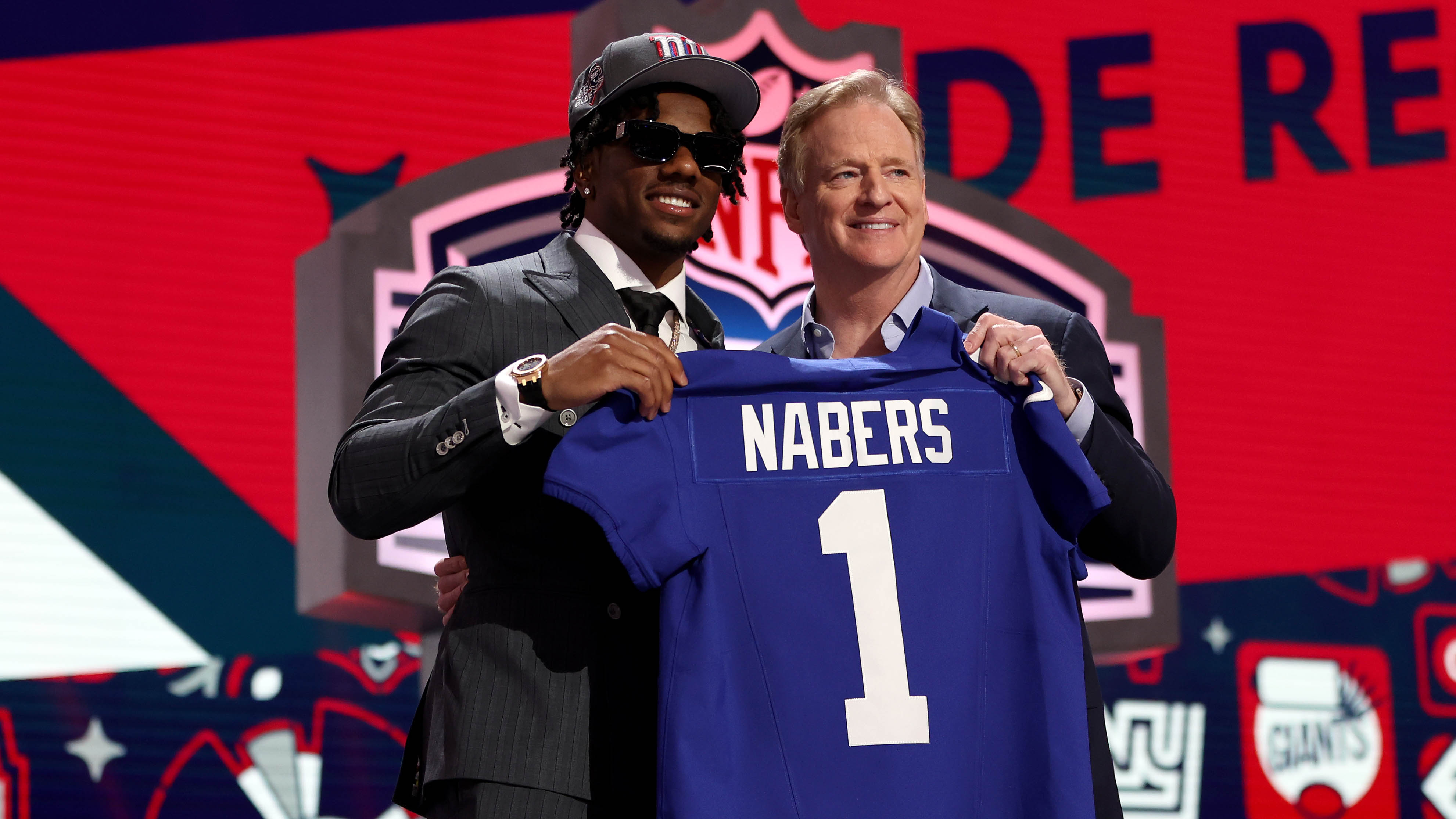
Dining in New York has taken a dramatic turn during the COVID-19 pandemic, upsetting thousands of restaurateurs who were forced to pivot their business model. The coronavirus appears to have accelerated the future of the hospitality industry, with many turning to tech to help them recover.
As businesses turn to find ways to stay afloat, high tech solutions have been used to preserve many of these establishments – and not just online ordering.
“Restaurants are switching gears now. Going to kiosks, mobile or online ordering, using a third-party delivery source - that’s what your future is,” said Sam Zietz, the CEO of GRUBBRR, a payment technology company that focuses on contactless payment, ordering systems and other technologies.
According to Zietz, it’s been a long time coming for hospitality, calling restaurants ‘notorious laggards in technology’ with the ‘if it ain’t broke, don’t fix’ mentality. He likens the movement toward other industries, such as in travel or banking.
Get Tri-state area news and weather forecasts to your inbox. Sign up for NBC New York newsletters.
“Within other industries, they had a similar evolution. Tellers and banks, what happened? We went to online banking and ATMs. Very rarely do you see tellers anymore,” said Zietz.
Comparing to restaurants, the role of cashier may seem obsolete. By cutting out the middleman, businesses save money, and every penny can count when the Big Apple still stomachs unknowns with the fate of indoor dining.

Effective last Friday, indoor dining resumed at 25 percent capacity across the state of New Jersey, including similar measures for movie theaters and indoor performances. During the same week, New York is still facing backlash for not having any plans in place.
Local
In a news conference last Wednesday, Mayor de Blasio noted the concerns and offered a timeline to finalize the decision.
“We’ve been honest with the restaurant industry about the challenge. But I’ve also heard back that folks just want a final answer so they can make their plans up and down. I think it’s our responsibility to give them as clear an answer in the month of September as possible of where we’re going,” the mayor said.
To that end, during a teleconference that same day, Gov. Andrew Cuomo “would like to see restaurants open” but put the emphasis on a lack of compliance on bars and law enforcement.
With restaurants left in the dark, forward thinking can become a guiding light. SevenRooms CEO Joel Montaniel strongly feels that personalized service, using tech to create a ‘360 degree’ view of the consumer, is necessary going forward with Covid.
SevenRooms is a hospitality guest experience platform using solutions from reservation management, contactless order and pay, guest profiles and marketing.
“Most importantly, we are helping restaurants build on their guests. For anyone who has opted into the restaurant marketing, we’re using that information to reach back out to guest automatically in a personalized manner,” said Montaniel.
In his example, if you typically order delivery twice a month, but you haven’t ordered anything in the last month, the system will automate a personalized ‘we miss you’ and offer a favorite, complimentary item in your next order.

According to Montaniel, an interesting trend has been seeing an uptick of fine dining establishments now turning to this tech, which historically they have shied away from.
"They launched it out of necessity. The contactless ordering at the table, it’s really picked up. We see new clients and those we’d never have guessed would have done given the circumstances,” Montaniel said.
To him, it’s doing whatever is necessary to survive as he shared his clients’ biggest concern is the feeling of uncertainty – ‘how long will I have to do this?’. However, it is the fighting uncertainty with regulation. Based off of a recent YouGov and SevenRooms study, more than 1 in 5 Americans specified that they would revisit a restaurant given a promotion or deal.
According the same study, 13% of Americans will only dine out at restaurants with contactless options. In the same vain, one NYC restaurateur is taking contactless to another level – launching a completely zero human interaction quick service restaurant dishing up dumplings.
Founder of Brooklyn Dumpling Shop, Stratis Morfogen originally concocted his own idea in 2019, keeping the Amazon locker system in mind. To him, coronavirus only reinforced the contactless demand with a twist return of the old-fashioned automat.
“In 2019 I actually wrote a business plan bringing back the automat. The automat is the most effective, cost-efficient way to deliver a product. I started researching Horn & Hardart, the founder of the automat in 1895 and how it exploded,” he said.
He likens the current times to post-Spanish Flu in the early 1900s.
“We’re still dealing with same the thing we did 100 years later with a pandemic. When I created Brooklyn Dumpling Shop, it was more about economics first before safety,” said Morfogen.

The idea behind the East Village shop launching this Fall is simple. You order your food online or over a phone, receive a barcode once ready and get assigned your individual food locker - temperature customized to hold your meal. Lockers even feature U.V. lights to ensure sanitation before you grab-and-go.
The idea of a contactless option is not new to the city. Japanese ramen food establishment ICHIRAN, with three New York locations, made blocking out distractions in mind, with solo dining in cubby-like booths. Eventually, moving forward with indoor dining, perhaps this idea would interest intro and extroverts alike taking Covid into consideration.
ICHIRAN has more than 60 locations in Japan, with restaurants in Hong Kong and Taipei. The idea of less human interaction in the food industry is not foreign beyond state lines. Montaniel related this to his customers in Singapore and recent trends in the U.S.
“I don’t think we saw that coming so fast in the States. If you go to China, you have this whole culture of everything is done through your phone ordering and paying, and we thought that world was going to be much slower to come to the U.S.,” Montaniel said.
To this entrepreneur, the tech response to consumers does not entirely rule out the full-service experience. It just means business owners should be more conscious of the consumer who now prefers contactless – and not lose out on the opportunity of serving them.
Owner of the West Village restaurant The Banty Rooster, Delores Trono-DePierro, unfortunately was forced to shut down her full-service establishment because of the virus. When asked during an interview, if she would ever reopen a business in New York again, her response was mixed.
“I’m not sure I would do a full-service restaurant in New York again. I might look at something smaller, whether it’s a walk-up window kind of thing. But I increasingly feel like something where you can do the sales but have a smaller overhead footprint,” she said in a previous interview with NBC New York.
Taking an intimate spin on the NYC dining experience is Resident. The company takes the current dining experience off the sidewalks and into an empty penthouse or luxury apartment, while following Covid regulations, using unused terraces. A private chef is there to cook a multi-course meal while you enjoy some of the city’s most exclusive residential spots.

Founder of Resident, Brian Mommsen, is surprised with the growth in demand but also mentioned, due to Covid, the increased interest from real estate.
“Partners are actually finding us to engage us. Because what we’re doing is creating value for a piece of their space in the building that is otherwise sitting idle,” Mommsen said.
To this hospitality entrepreneur, the coronavirus has “reinforced our desire to actually see one another.” Food is what brings people together and has the potential to unite. For him by creating Resident, it fosters a personal culinary relationship with the guest and chef.
Either way on how you chose to dine, the industry is influenced by your decisions. In the short-term, the future for hospitality still risks unknowns, but looking forward, there seems to be a growing trend – reinventing full-service with a touch of tech.
Check out how small businesses across the country are bouncing back and reinventing themselves during Covid. From restaurants, theater to sports, watch NBC’s new series Rebound. Click here to watch the latest episodes.



